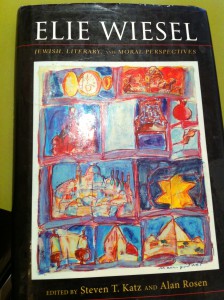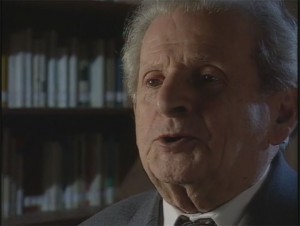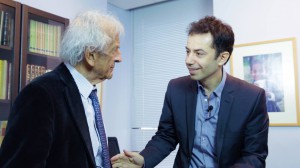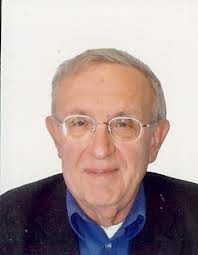“Shushani and the Problem of Humiliation
Not every teacher thus honored performed their task with equanimity of spirit. Many were angry, some morose. But Mordechai Rosenbaum (aka Harav Mordechai Shushani) presents a special case. His brilliance, erudition, and devotion to study are legendary, as experienced by Wiesel, Emmanuel Levinas, Shalom Rosenberg, and other members of an elite group of students. He was eccentric in appearance, behavior, and method, dressing poorly, maintaining secrecy in his comings and goings, saying little about his past, and holding marathon classes some days and disappearing for long stretches on others. (…) Wiesel also characterizes Harav Shushani as rude and abrupt, stooping so low as to mock, humiliate, and and torment his students. (…)
Harav Shushani did everything, in other words, that his student wouldn’t think of doing. Wiesel’s way is not to humiliate but to humanize.
Indeed, the relationship between Rav Shushani and his admiring student – humiliation on the one hand, loyalty on the other – replays how Wiesel some years later described the relationship between the renegade talmudic master, Elisha ben Abuya, and his lone remaining disciple, Rabbi Meir.(…) Wiesel never refers to Shushani as an apostate (though others apparently did). The question was more the effect of his teaching on the faith of others rather than on his own. Nevertheless, what thy shared was a pedagogy that had room for the humiliation of their closest disciples.
What then did our teacher learn from his own about teaching ? Perhaps he learned what NOT to do; perhaps WE learn, indirectly and paradoxically, that sometimes one chooses a master (or a master chooses a student) from whom one eventually diverges 180 degrees. But then again, it may be that Wiesel’s classroom teaching draws on Shushani’s, while filtering away its excesses.”
from ELIE WIESEL Jewish, Literary and Moral Perspectives. Alan Rosen.




